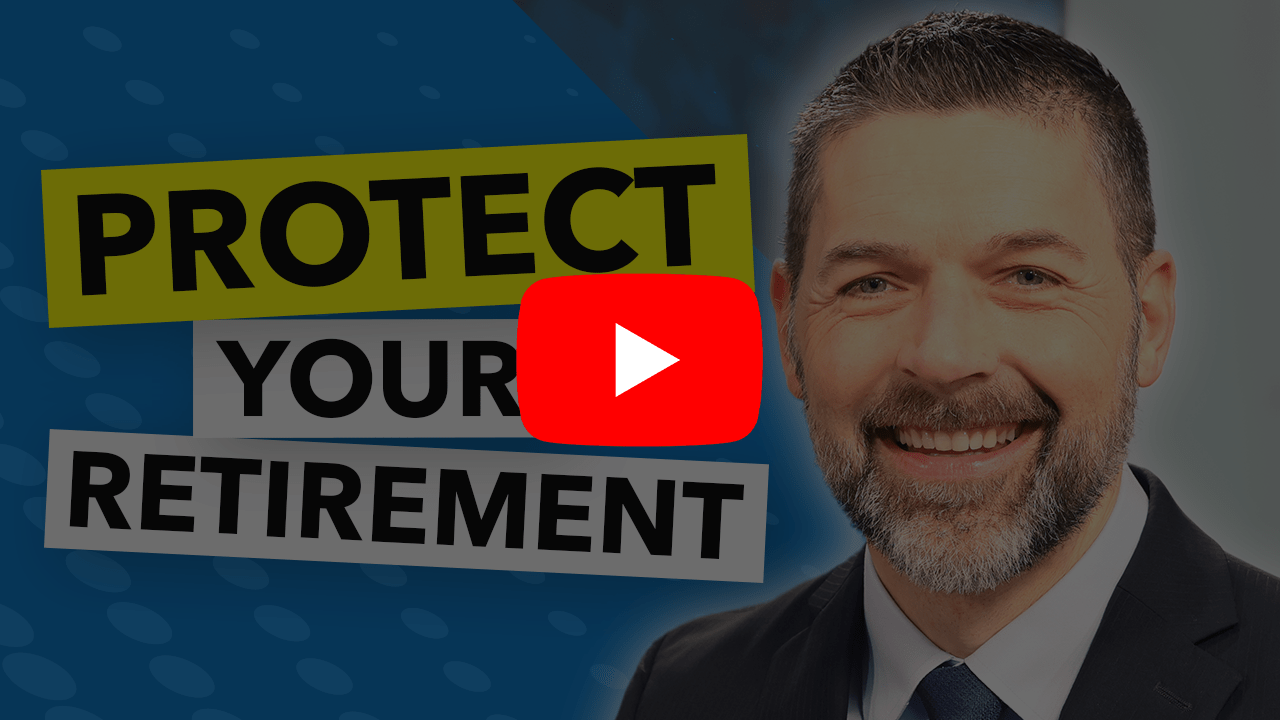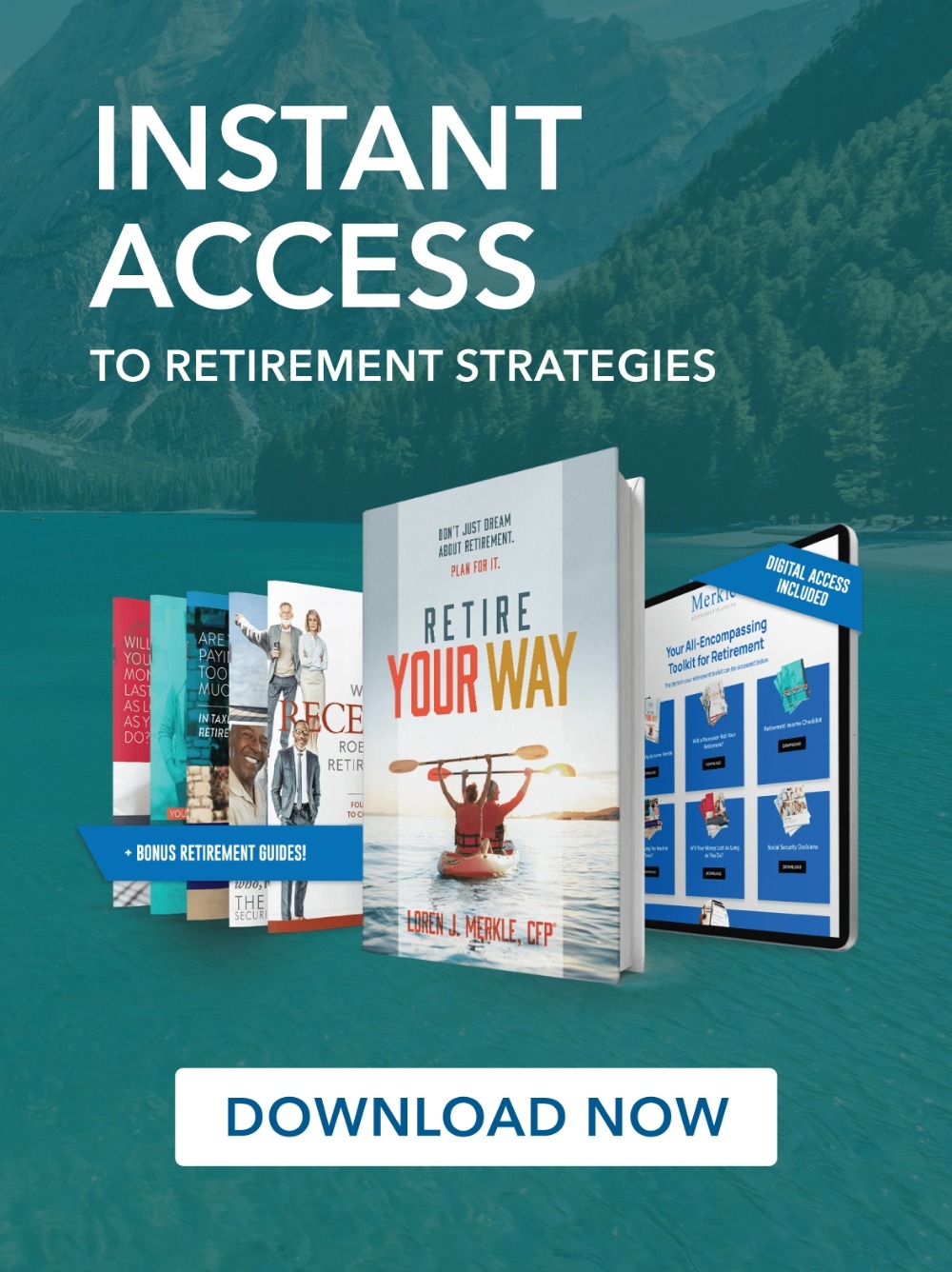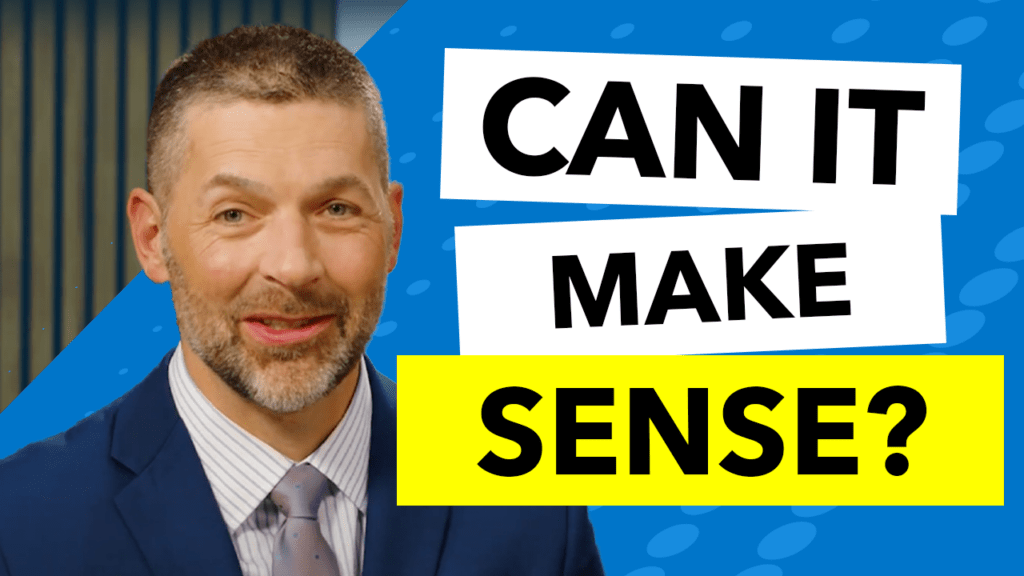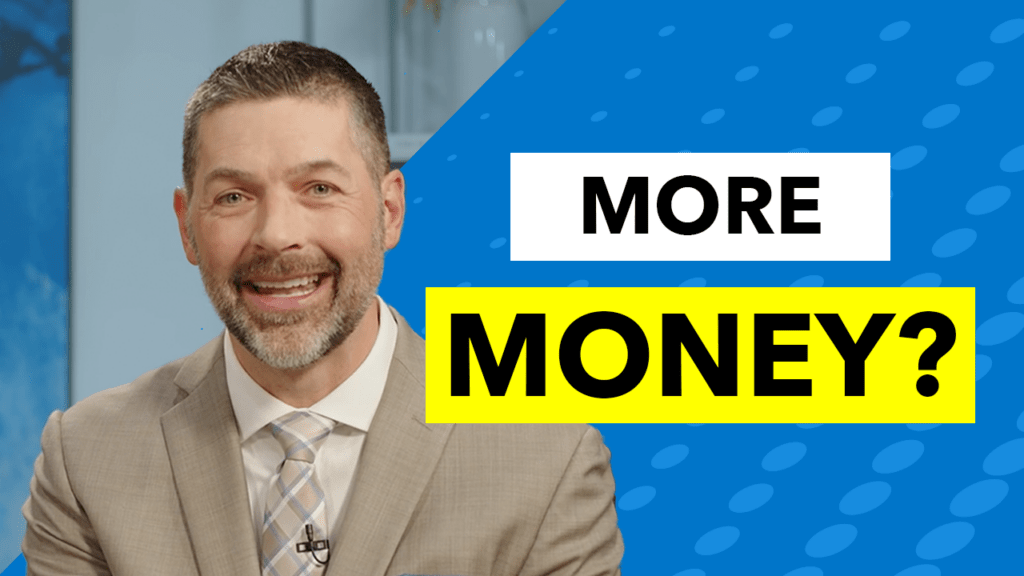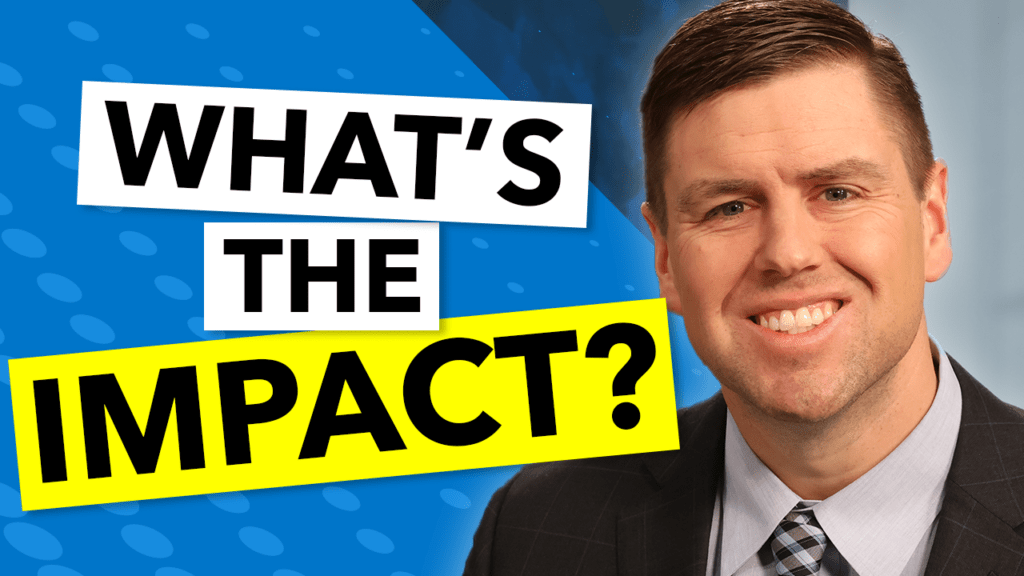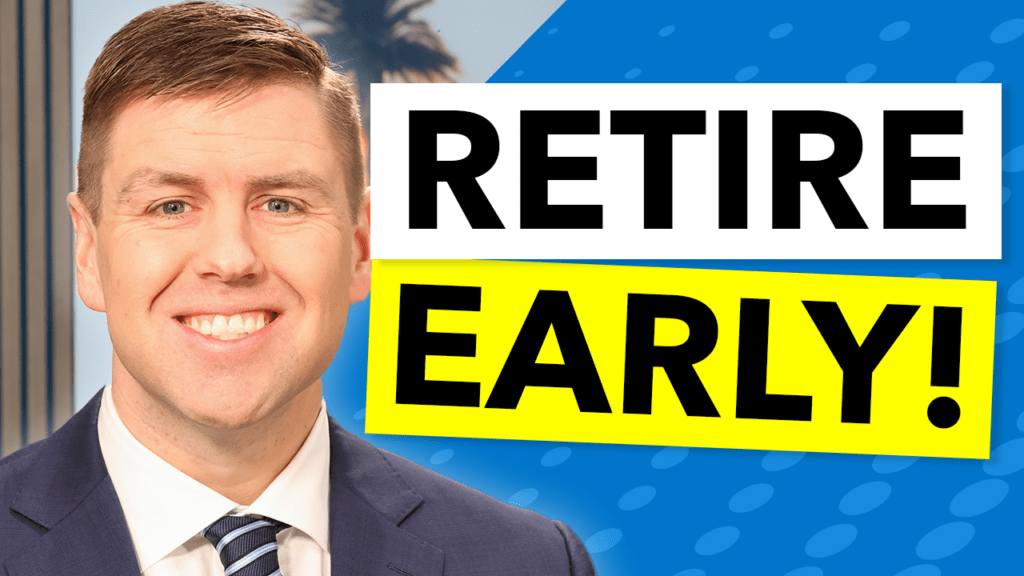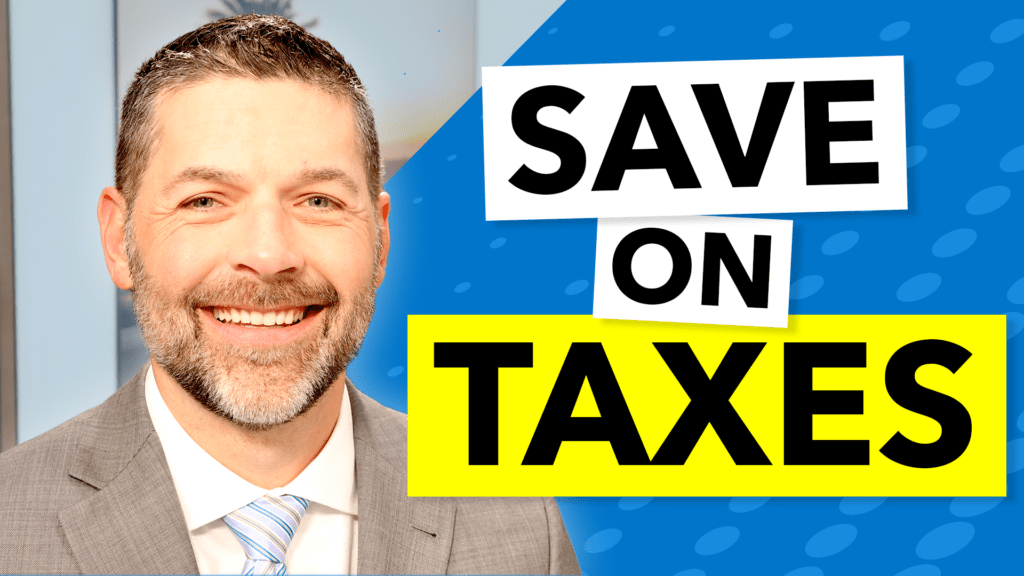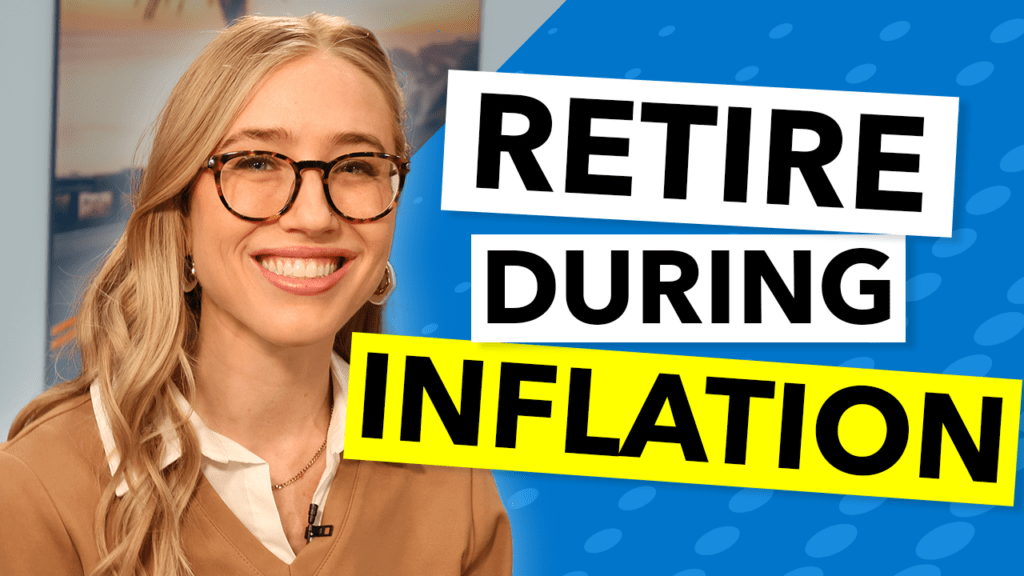Discover how to navigate the complexities of retirement planning with Retirement Planners Loren Merkle and Chawn Honkomp. Learn key strategies to live comfortably, protect your nest egg, and grow your investments during retirement.
– Understand how to create a comprehensive retirement plan that goes beyond just investment advice.
– Hear how one couple’s intuition prompted them to question a $12 Million Projection.
– Learn the importance of asking your financial advisor the right questions to ensure a plan fits your retirement goals.
– Discover the potential pitfalls of unrealistic return assumptions and how they can impact your retirement planning.
– Gain insights into the six pillars of retirement planning to help secure a confident and comfortable retirement.
–––––––––––––––––––––––––––––––––––––––––––––––––––––––––––––––––––––––––––––––––––––––––––––
TRANSCRIPT
Molly Nelson [00:00:00]:
You want to live comfortably, protect your nest egg, and grow your investments in retirement. Too much to expect? Find out next on Retiring Today. This is Retiring Today. I’m here with Loren Merkle and Chawn Honkomp, they are both CERTIFIED FINANCIAL PLANNERS™ and Certified Financial Fiduciaries® Chawn is a CPA. I said it off the top, guys. Live comfortably, protect your nest egg, and grow your investments in retirement. Loren, it is a lot to think about and a lot to maybe expect in retirement.
Loren Merkle [00:00:50]:
It’s a tall order, but that’s what almost everybody does expect as they look to make that transition to retirement. I mean, you didn’t work all of these years and save this money to start pinching pennies in retirement. You want to live comfortably and do all the things that you’ve been dreaming about over all these years that you’ve been working. But to live comfortably, most people are going to have to start taking money out of their investments. And to feel confident that the money is not going to be gone before you run out of time, you have to invest the money because you need to grow it. But then when you invest it, how do you do that? Because investing your portfolio in retirement while you’re taking money out of it is significantly different than when you were working and putting money into it for 20 to 30 years down the road. So, you start looking around, you start doing some research, you start talking to people about how to do all this retirement stuff, live comfortably, grow the money and protect, and you start hearing all of these mixed messages. And now you’re really confused.
Loren Merkle [00:01:46]:
And really the anxiety levels increase because all you want to do is live a comfortable, confident retirement.
Molly Nelson [00:01:53]:
Yeah. Chawn, before you show us kind of a powerful example, something that you dealt with recently, let’s talk a little bit about those mixed messages, because I think the people watching have heard different things. Try to live off the interest or live off the interest. Take 4% from your investments, 60/40 portfolio. All those things are out there. And it’s a confusing formula.
Chawn Honkomp [00:02:13]:
A lot of rules of thumb, a lot of general guidance or information that can be out there. And then it’s a matter of, well, which one’s right or which one might work the best for any given situation. And that’s where this uncertainty rests. We know as you go to make that retirement decision, it’s a really important decision, a lot of certainty. When you have somebody else’s paycheck coming in, you can spend that money. Now we get to retirement, and we’ve got to build that income that paycheck out of all of the assets that they’ve accumulated in any one given household.
Molly Nelson [00:02:42]:
And we’re kind of talking about things that you can see maybe on the Internet with a Google search. But you guys have seen that sometimes there’s mixed messages within the professionals that you’re working with or the financial advisors.
Chawn Honkomp [00:02:52]:
We know people are looking for information, and there’s a lot of uncertainty when it comes to managing a portfolio and what that might look like throughout somebody’s retirement journey. And I had a great example, I got to experience a great example of this just recently. So, I met with a couple for the first time just in the last few weeks, both of them age 55, and they have a $1 million saved for retirement. They’re working with an advisor. This advisor was showing them a plan, so they felt really good about what they’re facing and all the decisions that they’re needing to make. And this advisor’s plan showed them that if they were to live to age 100, their portfolio was going to be, wait for it, almost $12 million. Great number to see, and you would think they would feel amazing, but yet they knew that something just didn’t quite feel right. This $12 million portfolio, how they got there was that the plan showed them that this $1 million portfolio at age 55 was going to continue to grow, get a rate of return in the markets, and they were never going to take any distributions.
Chawn Honkomp [00:03:58]:
That’s not realistic for most of us. Loren touched on it. Most of us are going to be taking distributions. But when you see a plan like this, generally the reaction would be, hey, party time, let’s bust out the confetti. No more planning to be done. Let’s just sail into retirement. But this couple came to us knowing there has to be more to this. They’re entering a new stage of life.
Chawn Honkomp [00:04:19]:
They’re ready for an overall retirement plan. So, we started meeting with them, and we helped them develop this comprehensive plan. They know they want a lifestyle. Most of us are going to want to spend this retirement. That’s why we save. So, they want to spend around $8,000 per month. An additional part that we need to factor in inflation. That $8,000 per month is not going to be the same.
Chawn Honkomp [00:04:43]:
So that at 2% inflation, their lifestyle need is going to continue to increase throughout their retirement journey. So, we built this plan for them, and we showed them one scenario. Let’s assume a 6% rate of return at age 100 for them. Their portfolio was expected to be somewhere around $1.7 million. Quite different than the $12 million they were seeing before. But it’s a different plan. Another scenario that we ran was showing them a 4% rate of return. That’s one of the big assumptions that are part of your plan.
Chawn Honkomp [00:05:18]:
That’s information you want to be aware of. You want to know what is your plan assuming, what is your plan reflecting at 4%, their portfolio at age 100 was going to be zero. And in fact, the plan showed them running out of money at age 88. So quite different than what they were getting from their existing advisor, who was also showing them a plan. The plan we were showing them is much different, but yet they told me, they even said, hey, they feel so much more confident about what they were seeing, because now we were looking comprehensively. We were thinking about inflation. We’re covering their lifestyle. We’re thinking about what this next stage of life is going to be, which includes so much uncertainty.
Chawn Honkomp [00:06:01]:
And the more planning we can do, the little more predictability we can create, and the less we can decrease that uncertainty. A little bit less uncertainty and more predictability is going to make you feel confident about what’s in front of you in retirement. So now this is a couple that we’re working with, even though, again, the plans that they were being shown drastically different, they know more information leads to a better plan and provides them with the more confidence that they were seeking.
Loren Merkle [00:06:29]:
So, Chawn, just to be clear, just to make sure I heard you correctly, what you’re saying is the couple felt better about a plan showing them running out of money in their late 80s, as opposed to $12 million at age 100. Is that what you just said?
Chawn Honkomp [00:06:42]:
That’s absolutely the case. We know that there’s a lot of different pieces to these plans, and we can ultimately, a plan can show you whatever you want to see, but that’s where we’ve got to understand, are we thinking about everything? What assumptions are part of that? We need to have that information so that you make sure feel realistic about it. Let’s use good assumptions. Let’s make sure we’re thinking about all the aspects of your entire retirement life.
Loren Merkle [00:07:04]:
Yeah. Using the right assumptions is absolutely key when it comes to long term planning, we can use any percent return we want to, 12%, in my opinion, is just dangerous because it can show a very unrealistic outcome. In order for somebody to average 12% rate of return over a 30-year time frame, you have to be aggressively invested, which is what most retirement don’t want. Because when we go through the inevitable recessions, that aggressive portfolio is going to be down 30%, 40% plus. And when you’re taking money out of your life savings and you lose 30 plus percent, kind of like what happened in 2008, that can have disastrous results. So, we have to be really conservative with any of these assumptions that we make.
Molly Nelson [00:07:47]:
Well, and guys, I know you guys both told me this, this isn’t the first time you’ve seen something like this. Unfortunately, this happens with some frequency.
Chawn Honkomp [00:07:55]:
This isn’t the only time. Just like you said, not the first time I’ve experienced it, not the only time, and it won’t be the last time. And I think the big takeaway is that not all planners do the same thing. Many advisors out there are investment advisors only, and that’s what they’re going to focus on. Let’s look at the portfolio. Let’s show somebody what it could potentially do during a given time frame. That’s not what we do as retirement planners. We’ve got six areas that we focus on, one of those being the investment plan.
Chawn Honkomp [00:08:22]:
But we know there’s so much more that is part of retirement. There’s so much more that we need to be thinking about.
Molly Nelson [00:08:28]:
Yeah. So, it’s not just investments, it’s an entire plan. And a great way to get a good idea of all the other things that go into this besides investments is our online Journey to Retirement workshop.
Loren Merkle [00:08:38]:
In the online Journey to Retirement workshop, we use a hypothetical couple, John and Sue, and we show you through the eyes of John and Sue, how to build a recession resistant portfolio. John and sue has some very specific goals that they want to accomplish in retirement. One of it, from an investment standpoint, is they want to grow their portfolio. They want to live on the portfolio, take income, they want to beat taxation. They want to beat inflation. We show you how to create that low volatility, recession resistant portfolio and how John and Sue can accomplish all of those goals in the midst of this uncontrollable market. Right. Nobody knows what the market’s going to do.
Loren Merkle [00:09:15]:
It’s going to go up. It’s going to go down. Regardless of what happens to the market, you should be able to have the lifestyle and comfort in retirement. And that’s part of what we show you in the online Journey to Retirement. Through John and Sue.
Molly Nelson [00:09:26]:
You can sign up for the online Journey to Retirement workshop at RetireWithMerkle.com. There’s a QR code on your screen as well. You can hover your camera over that, go right there, choose a time and a date that works for you, and find out what all goes into a comprehensive retirement plan. But we’re not done talking about this yet. You still might be wondering. I don’t want that to happen to me. I don’t want the numbers to be drastically different. I want the right numbers.
Molly Nelson [00:09:47]:
We’ll talk about how to get to your right numbers and the right numbers for your retirement plan. Next.
Voice Over [00:10:03]:
Do you wonder if you have enough saved for retirement? Will your money last as long as you do? Will taxes, health care costs and inflation derail your retirement? Get answers. Schedule a 15 Minute Retirement Check-Up Call today. We can cover a lot in 15 minutes, including strategies you can implement now to start your retirement journey. Schedule a call at MerkleRetire.com the first step to a confident retirement starts with a simple phone call.
Voice Over [00:10:34]:
Do I have enough saved for retirement? When should I take Social Security? Which Medicare option is best? How do I plan for inflation? Sometimes the road to retirement starts with more questions than answers. We’re here to help. Join us for our upcoming Journey to Retirement workshop. Get answers and start your retirement journey with confidence. Our online workshop includes information on Secure Act 2.0 and changing retirement rules. Visit RetireWithMerkle.com to register for an upcoming workshop. Your retirement journey starts now.
Voice Over [00:11:04]:
The Merkle Retirement Planning team provides personable and professional expertise unrivaled in this area. They include us in every step of the planning process. The peace of mind provided to us by the Merkle team allows us to fully enjoy this special time of our lives. Instead of feeling snake bit, we feel confident that with the Merkle Retirement Planning team at our sides, we can navigate any challenge that comes our way.
Voice Over [00:11:29]:
Merkle Retirement Planning. Your retirement starts here.
Molly Nelson [00:11:50]:
Welcome back to Retiring Today. Now it’s time for Your journey Your Questions, this is when we answer questions from you. These are questions that we get during our online Journey to Retirement workshop. Here’s a question we got recently. Can I still elect my survivor benefit at 61 if I remarry after 60? I’m here with Loren Merkle and Chawn Honkomp. Loren, what’s the answer?
Loren Merkle [00:12:13]:
The answer is yes. And the key to that question is they remarried. She remarried after age 60. And this is a very little-known rule. A lot of people don’t know about this, but it’s a big rule. It wasn’t that long ago I met with a couple who went to a workshop. They came in and the story is, let’s just call them Bill and Sally. Sally was previously married.
Loren Merkle [00:12:33]:
Her husband passed away, and seven years later she met Bill. Two years later, they got married. If they would have waited one extra month to get married, then Sally would have received an extra $1,500 a month from her survivorship Social Security benefit.
Molly Nelson [00:12:49]:
Wow.
Loren Merkle [00:12:50]:
Now, Bill was still working at that time. $1,500 a month was a big deal to Bill and Sally. And I guarantee you, in fact, they told me they would have waited one extra month.
Molly Nelson [00:13:00]:
Sure.
Loren Merkle [00:13:00]:
So, the key is they got married at 59 and eleven months, as opposed to waiting until after age 60. All they had to do is wait till after age 60, remarry. Sally would have still received that survivorship benefit.
Molly Nelson [00:13:11]:
That’s a really interesting story. So, when it comes to Social Security, people probably sometimes are surprised to learn about all of these options and all these little nuances that can, over the lifetime of your benefit, equal thousands and thousands of dollars.
Chawn Honkomp [00:13:25]:
Information is extremely valuable as you get to this stage of life, especially when it comes to Social Security. It is not uncommon for a couple to expect to receive up to or even over a million dollars in total Social Security benefits. So, we always talk that there’s 81 different options for a married couple, and that’s excluding the unique situations of a widow or maybe being able to collect it even as early as age 60. So, in most circumstances, you can’t elect it until age 62. So, you want to have a plan around Social Security. It’s a big part of the retirement journey. It’s going to be a big part of your income plan, and it’s something we focus on in our journey to retirement workshop.
Molly Nelson [00:14:01]:
Yeah, you spend a lot of time in the workshop talking about it, but you spent a lot of time because for the couple in the workshop, it means a lot of extra money.
Loren Merkle [00:14:09]:
If they do the strategy right, it does. And for John and Sue in the workshop, not only did they collect over a million dollars over the course of their projected 25-year retirement, but based on different decisions they could have made. The decision that they made in that Journey to Retirement workshop produced over $80,000 of extra lifetime benefit for John and Sue. And that $80,000 plus goes a long way to helping them live that lifestyle, that comfortable lifestyle that they’ve been dreaming about for so long.
Molly Nelson [00:14:41]:
What would you do with an extra $80,000? You could take your dream vacation or vacations in retirement. So, you’ve got to see this. You’ve got to see this strategy because it’s very powerful. You can see it in our online Journey to Retirement workshop. Go to RetireWithMerkle.com. Right now. You go there, you can choose a time and a date that works for you and then get comfortable because you’ve got 2 hours. But don’t worry, it’s 2 hours well spent.
Molly Nelson [00:15:04]:
It’s 2 hours learning about all the decisions ahead in retirement. Chawn, who is a good candidate to view or attend this online workshop?
Chawn Honkomp [00:15:14]:
A lot of people should be thinking about retirement. That’s why we’re all saving. But if you’re age 55 or anywhere beyond, you are in the perfect stage of life to get this kind of information. We walk through the six pillars that we focus on. The primary goal is to help get people going. We hear from so many people that the hardest part is getting started. So going to the journey to retirement workshop, that’s going to be step one for you. That’s going to put you in a position to start getting this information.
Chawn Honkomp [00:15:40]:
Let’s avoid some one-time decisions that can be very impactful, much like your Social Security decision. Let’s avoid making decisions that are just isolated decisions. The six pillars that we focus on, we know there’s a lot of overlap in those. We don’t want to be looking individually, making some decisions as we make Social Security decision. We want to be thinking about the tax plan. We want to be thinking about the investment plan and the income plan. So, let’s provide you, let’s give you as much information as you need so you can feel confident with these decisions that are in front of you.
Loren Merkle [00:16:09]:
Also, one of the things that people like about the online Journey to Retirement workshop, it is very simple. All you have to do is sign up for it, and then you can take all of this information in from the comfort of your own home. And even after the workshop, you’ll get a recorded version of the workshop. You can ask questions during the workshop, and who knows, maybe your question will end up on the TV show as well. So, it’s very simple to obtain this information. Do it from the comfort of your own home, and it’s complimentary. It doesn’t cost you anything to attend.
Molly Nelson [00:16:40]:
So, you’ll want to meet John and sue. You want to see how they get this extra $80,000 out of Social Security, and they develop a long-term tax plan that saves them a lot of money in retirement as well. Go to RetireWithMerkle.com, sign up for a time and a date that works for you, and get ready for 2 hours of very valuable information. We’ve got some more valuable information in this show, though. Remember that example Chawn talked about not long ago, the $12 million versus the $1.7 million. So, what questions should you be asking your advisor to make sure that your plan is comprehensive, we’ll talk about action steps next.
Voice Over [00:17:19]:
Do I have enough saved for retirement? When should I take Social Security? Which Medicare option is best? How do I plan for inflation? Sometimes the road to retirement starts with more questions than answers. We’re here to help. Join us for our upcoming Journey to Retirement workshop. Get answers and start your retirement journey with confidence. Our online workshop includes information on Secure Act 2.0 and changing retirement rules. Visit RetireWithMerkle.com to register for an upcoming workshop. Your retirement journey starts now.
Voice Over [00:17:50]:
Anytime I have even the smallest question about my accounts or what effect the latest tax law might have on my situation, the Merkle Retirement Planning team is always there and quick to help. I’m so glad they treat you like, well, like family. I’m so happy to have such an excellent team working for my future and ensuring I do the best to achieve my financial goals.
Voice Over [00:18:14]:
Merkle Retirement Planning. Your retirement starts here.
Molly Nelson [00:18:34]:
Welcome back. I’m here with Loren Merkle and Chawn Honkomp. Okay, let’s do a quick recap on the top of this because this is pretty powerful. So, a couple comes in, they’re 55, they’ve got $1 million saved for retirement. They’re working with an advisor. That advisor tells them at age 100 they’ll have $12 million. You take a look at this, and you go, hang on. Let’s, let’s take a comprehensive view.
Molly Nelson [00:18:51]:
We’re going to run some numbers and we’re going to tell you, I think at age 100 you’ll have $1.7 million. Okay, I’m putting myself in the seat of the viewers, guys. They’re getting some number from the advisor they’re working with. May not be $12 million, but maybe they’re getting $500,000 or $250,000. And they might be feeling good about that number like most people would hearing $12 million. How do they know what questions to ask or how do they know if they’re in the same scenario, Chawn, as the couple that you just met with?
Chawn Honkomp [00:19:19]:
You’ve got to start questioning everything. And part of in this specific example, they knew that they kind of had a goal of they wanted to get to $2 million before they were going to feel comfortable making that retirement decision. Yet that current plan was saying, hey, at a million, this looks wonderful. So, they knew that, hey, there’s got to be more to this.
Molly Nelson [00:19:37]:
So, they just had that $2 million as their own kind of personal goal. That’s what they wanted to get saved up before they retired?
Chawn Honkomp [00:19:42]:
Again, unknown until you see this full comprehensive plan and start thinking about everything where a lot of people are guessing a little bit. So, you got to take it upon yourself. You’ve got to seek out this information. You are going to retire. You only want to retire once. We hear that so often. We know you’re going to retire once you want to get it right.
Chawn Honkomp [00:19:59]:
So, it’s up to you to take that step and go seek out as much information as you can. But you’ve got to ask questions. So, if we’re working with an advisor, you’ve got to ask questions about what’s all included in a plan and then start thinking about what are they not thinking about. And that’s why we are specialists within our industry as retirement planners. We do this each and every day. We help families that we work with build this comprehensive plan so we know what we need to be thinking about it. But if we don’t ever get the opportunity to talk to you, you may not always know. So, you’ve got to seek out these resources.
Chawn Honkomp [00:20:30]:
You have got to get as much information as you can because you want to have a solid retirement ahead of you.
Molly Nelson [00:20:34]:
Okay, let’s spell it out, though. Yeah. Are you getting there? Because I want to spell it out.
Loren Merkle [00:20:38]:
Well, I think the specialist is the real key. I mean, you can ask all kinds of questions, like, what kind of assumptions are you using? Are you using a 10% average return? 2%? You can ask all those questions. But even if those assumptions are right, there’s a lot of different ways that the advisor can go wrong in planning for the nuances of retirement. So, the question you want to ask is, what does your typical client look like? And if the response is anything different than what you look like from the phase of your life, then you know you’re probably in the wrong place. You can also ask, what do you specialize in? And there should be a response of a specialty. Like, we specialize in retirement planning. Our families are 55 plus. They’re all looking to retire within a certain period of time.
Loren Merkle [00:21:19]:
And we write comprehensive written retirement plans. If the answer is not something that resembles the phase of life that you’re in, you’re probably in the wrong place. There are broad phases of our lives. Broadly, there’s working years and then the retirement years, and there’s sub phases underneath each one of those. But you want somebody who specializes in the phase of life that you’re in, which is why if you’re 30 years old, you’re in the working years. We probably are not a good fit. If you’re 55 and you want to retire within a few years. Now, that is our specialty, and that is what our typical client looks like.
Molly Nelson [00:21:52]:
And I’m still thinking that the couple that heard the $12 million, I’m guessing that this financial advisor said, this is a comprehensive plan. This does include what you need, because they’re thinking solely about investments. So also, is it appropriate to say, well, what about Social Security? How does this play into it? What about taxes? I mean, ask some questions like that, too.
Chawn Honkomp [00:22:12]:
Those are the other components or part of this stage of life. So, yeah, great. I like what you said there, Molly. You should ask that advisor to define what comprehensive means. Comprehensive means something different to what we do as retirement planners than what somebody as solely as an investment advisor. They’re going to think. As long as we’re thinking about everything when it comes to investments, to them, that’s comprehensive. Another good way to think about that is if you have your review visits with your advisor, just summarize, analyze what they talk about.
Chawn Honkomp [00:22:40]:
Most advisors are only talking about the investments, so they aren’t doing these other things. If they’re not talking to you about that, then you know that’s not what they do, and they aren’t the fit for the stage of life somebody might be in.
Molly Nelson [00:22:50]:
And I’m going to go back to that rate of return question, because I think you said that sometimes you use 4% to 6%, you try to be conservative, hoping, obviously everyone’s hoping they’ll do a little bit better than that. But you threw out 12%. Is that a common number that people are sometimes coming in and showing that an advisor has shown them 12% rate of return?
Loren Merkle [00:23:11]:
Unfortunately, a number higher than it should be. A 10% or a 12% is a common assumption that’s used within the industry. I mean, if we just look back to the turn of the century, from the year 2000 to the current year, the S&P 500 has only averaged something north of 7%. And that’s 100% equity portfolio, which means it is an aggressive portfolio, which most people in retirement don’t want that type of risk exposure. So, if you’re using an assumption of even 7%, that is probably a higher assumption than you should be using. So, for most of our plans, we are using an assumed return of somewhere around 4%. Now, that’s not your target return. You want to earn something higher than that.
Loren Merkle [00:23:56]:
But we do know that if your plan looks good, you can live comfortably and confidently over the next 25 years of retirement at an assumed rate of 4%. Anything higher than that is just going to be extra. And then we can start talking about other planning elements, like how are you going to give while you’re alive? Or what happens to the resources that are left over when you do pass? How do those resources transition in the most efficient way possible to your charities and your loved ones? So, all of this stuff is baked together, but the assumptions you use are absolutely imperative to make sure you’re making the right decisions the first time.
Molly Nelson [00:24:33]:
Yeah, I think that also leads to kind of that legacy planning thing. How much do you want to have left? I mean, $12 million would be great. I could get a building, I guess, named after myself or something. But generally, some people don’t want to. Most people, I would think, don’t want to pass. With $12 million left over. That’s just so much money. Again, building would be about your only option.
Molly Nelson [00:24:52]:
So how much do you want to have left? Needs to be worked into the plan, too.
Chawn Honkomp [00:24:56]:
That’s not certainly an everyday number of $12 million. And then those goals are. We see a wide range of these goals. We have conversations with the families we’re working with, and you tell us, hey, you want your last check to bounce? Or, hey, we’ve got three kids. I’d like to be able to leave a meaningful amount and help them get along their way. Because maybe you inherited from your parents. So that’s one of your goals. That’s important to you.
Chawn Honkomp [00:25:16]:
So, we got to identify that goal. As we’re helping build this plan, we’ve got to say, hey, what are those legacy goals? What are we striving for? Make sure we know about that. And then that helps us make some of these decisions. If we’ve got more than enough saved, well, then maybe we can take more risk. Doesn’t mean we have to, right? But now we maybe have a little room. So, knowing how much risk we’re taking, we’ve got to think about all these goals so that we’re doing what’s best to put the family we’re working with in the best position to achieve their retirement goals.
Molly Nelson [00:25:44]:
So, let’s wrap up those action steps, because I want to make sure people understand. Ask the advisor, who are the clients you’re working with? What do you specialize in? Is there one more question? Maybe that would be good to ask Loren?
Loren Merkle [00:25:54]:
Yeah. What does it look like to work with me based on my stated goals? So, part of this conversation with this advisor is, here’s where you are, here’s where you’re wanting to go. Now, what does that look like? What would that relationship look like in detail? That would be another good question to ask.
Molly Nelson [00:26:11]:
And in summary, that can be, what is your process? What is your process to help me put together a comprehensive retirement plan?
Loren Merkle [00:26:16]:
Exactly.
Molly Nelson [00:26:17]:
Okay. So, part of the process of putting together a comprehensive retirement plan is understanding what all goes into the plan. That’s where this online Journey to Retirement workshop comes into play. It goes over those six pillars you heard Chawn and Loren talking about. It kind of gives you an idea of what’s ahead, the decisions that you’ll have to make as you head to and through retirement. You can go to RetireWithMerkle.com right now to sign up for a time and a date that works for you. And of course, you can also keep watching this show. We’ll talk about all of those retirement decisions.
Molly Nelson [00:25:16]:
It’s Retiring Today, and we thank you for watching.
Voice Over [00:26:58]:
Do I have enough saved for retirement? When should I take Social Security? Which Medicare option is best? How do I plan for inflation? Sometimes the road to retirement starts with more questions than answers. We’re here to help. Join us for our upcoming Journey to Retirement workshop. Get answers and start your retirement journey with confidence. Our online workshop includes information on Secure Act 2.0 and changing retirement rules. Visit RetireWithMerkle.com to register for an upcoming workshop. Your retirement journey starts now.
Voice Over [00:27:29]:
You dream of a happy retirement, but there are some big questions to answer. First, do I have enough saved? When should I take Social Security? How will I pay for health care and keep up with inflation? Go to MerkleRetire.com to schedule a 15 Minute Retirement Check-Up Call to talk directly with a Retirement Planner and get answers to your important retirement questions. The first step to your retirement starts with a 15 Minute Retirement Check-Up Call.
–––
We are an independent financial services firm helping individuals create retirement strategies using a variety of investment and insurance products to custom suit their needs and objectives. The content and examples shared are for informational purposes only and should not be construed as investment advice or serve as the sole basis for making financial decisions. Individuals are encouraged to consult with a qualified professional before making any decisions about their personal financial situation. Our firm is not permitted to offer legal advice. Investment Advisory Services offered through Elite Retirement Planning, LLC. Insurance Services offered through MRP Insurance, LLC.
